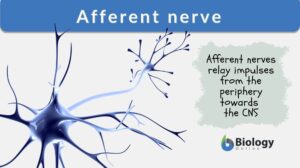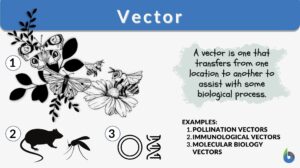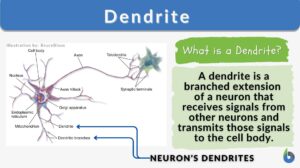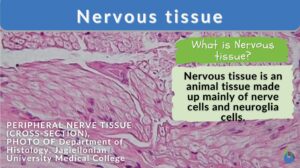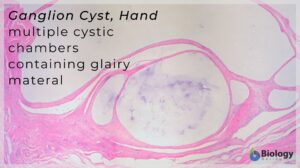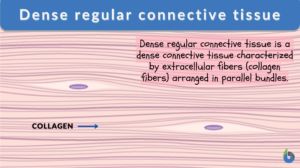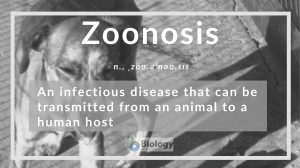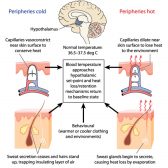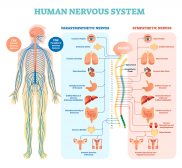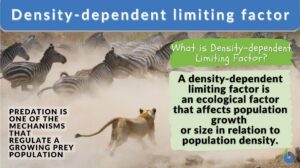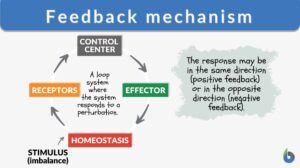Search Results for: transmit
Afferent Nerve
Afferent Nerve Definition The word ‘aferent’ means "steering or conducting something towards a destination". The... Read More
Reservoir host
Reservoir Host Definition A reservoir host is a host that harbors the pathogen and serves as a source of the infective... Read More
Sexually transmitted disease
Definition noun, plural: sexually transmitted diseases (pathology) A disease that is primarily contracted through sexual... Read More
Nervous System
THE is the most complicated and highly organized of the various systems which make up the human body. It is the... Read More
Nervous tissue
Nervous Tissue Definition Nerve cells (or neurons) and their associated cells, such as neuroglia cells, make up nervous... Read More
Sensory neuron
Definition noun, plural: sensory neurons A type of neuron that transmits sensory nerve impulses Supplement The neurons are... Read More
Dense regular connective tissue
The dense connective tissue is a type of connective tissue proper that consists predominantly of fibers, especially type I... Read More
Ectoparasite
Definition noun, plural: ectoparasites (parasitology) A parasite that lives outside the body of the... Read More
Genetic Information and Protein Synthesis
Genetic Code Genes are sequences of DNA nucleotides that carry and transmit the information specifying amino acid sequences... Read More
Neural Control Mechanisms
Nerve cells called neurons generate electric signals that pass from one end of the cell to another and release chemical... Read More
Internal acoustic meatus
Definition noun A short, narrow passageway through the temporal bone of the skull where the vestibular nerve and cochlear... Read More
Temperature Regulation in Animals
Control of Temperature in Homeotherms Animals capable of temperature regulation within a given range are deemed homeotherms... Read More
Reticular activating system
reticular activating system (Science: physiology) A physiological term denoting that part of the brainstem reticular... Read More
The Human Nervous System
The nervous system is essentially a biological information highway, and is responsible for controlling all the biological... Read More
Density dependent limiting factor
What Is A Density-Dependent Limiting Factor? Density-dependent limiting factors are limiting factors, which, depending on... Read More
Feedback mechanism
Feedback Mechanism Definition What is a feedback mechanism? A feedback mechanism is a physiological regulation system in a... Read More
Sensory Systems
A sensory system is a part of the nervous system consisting of sensory receptors that receive stimuli from the internal and... Read More
Axon terminal
An axon terminal is any of the button-like endings of axons through which axons make synaptic contacts with other nerve... Read More
Efferent neuron
Definition noun, plural: efferent neurons A neuron with an axon that carries nerve impulses peripherally, and innervates... Read More
Sense organ
Definition noun, plural: sense organs An organ or structure that has nerve endings capable of detecting and reacting to a... Read More
Subcutaneous filariasis
Definition noun A type of filariasis caused by adult filarial worms that dwell in the subcutaneous layer of the... Read More
Chemical Composition of the Body
In order to fully understand the mechanisms of human physiology, it is important to have an understanding of the chemical... Read More
Refractory Period
(neurology) the time after a neuron fires or a muscle fiber contracts during which a stimulus will not evoke a response.The... Read More
Cell signaling
Definition noun The process of communication occurring between the cells and within the cell Supplement Cell signaling is... Read More
Antagonistic Muscle
Definition of Antagonistic Muscle What does the term “antagonistic” mean? As the name suggests, the word antagonistic... Read More
Phosphorylation
Phosphorylation Definition We can define phosphorylation as a biochemical process in which a phosphate molecule is added to... Read More
Internal auditory canal
Definition noun A short, narrow passageway through the temporal bone of the skull where the vestibular nerve and cochlear... Read More
